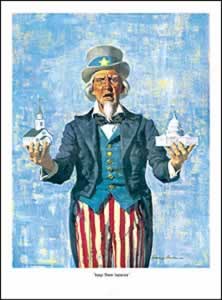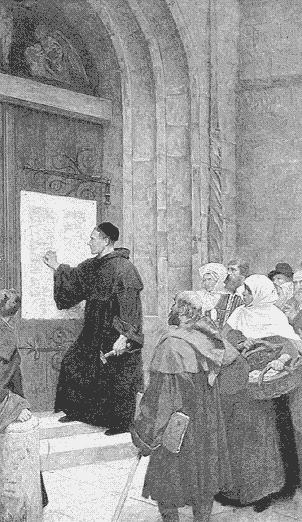Calling it a “holy alliance” the Catholic Church and all three of Italy’s main trade unions joined together to campaign against the liberalization of work rules that protects Sunday for families. The March 4, 2012 protests across Italy were part of a Europe-wide push to support Sunday rest. Union members picketed outside a shopping centre in Rome while street parties were held in Florence, Milan and Pisa. Sunday shop opening, said the unions in a statement, would lead to “worse economic conditions.”
“Liberalising businesses by opening them seven days a week does not increase consumption but it has an impact on the material conditions of workers with ever harsher shifts and increased demands on flexibility,” said Susanna Camusso, the leader of Italy’s biggest trade union, CGIL.
“Workers are stressed out by unworkable shifts and the unimaginable difficulties of spending time with their families and taking Sundays not just as a day of rest but of personal reflection,” said an editorial in the bishop’s journal Avvenire.
The great time of trouble in the last days includes religious laws as well as violence and chaos. As they unite with the Roman Catholic Church to promote her projects, trade unions will become more aggressive and fierce.
“
…The trade unions will be one of the agencies that will bring upon this earth a time of trouble such as has not been since the world began.” Manuscript Releases, Vol. 4, page 88
A “holy alliance” with the Catholic Church does not bode well for God’s people.
Source
Thursday, March 29, 2012
Thursday, March 15, 2012
Santorum and Romney: Opposites on Separation
Rick Santorum and Mitt Romney, two Republican Presidential contenders, have completely different positions on separation of church and state. Santorum, whose views settle well with evangelical Protestants but not so well with Catholics, says that the churches and religion should have a say in government, suggesting that Santorum, who is Catholic would permit his church leaders to influence his thinking in policy decision-making.
Mitt Romney, on the other hand, when confronted with questions about how much his Mormon faith would influence his decisions as President, recently said ““Let me assure you that no authorities of my church, or of any other church for that matter, will ever exert influence on presidential decisions.” This is similar to what John F. Kennedy, the first and only Catholic to serve as President of the United States, said on his presidential campaign tour in 1960. “Their authority is theirs,” said Romney “within the province of church affairs, and it ends where the affairs of the nation begin.”
Santorum has caused concern because of his rather puerile statements of revulsion of Kennedy’s speech. He said that reading it makes him “want to throw up [vomit].” Such an extreme expression suggests that Santorum’s policy-making decisions would be heavily influenced by his Catholic faith and probably church leaders, and would open the door to even more encroachment by the bishops on U.S. policy than already exists. It also suggests that Santorum is not measured and well-considered in his attitude toward religion, and could be easily reigned up to undermine the separation of church and state even more than it already has been.
Santorum went on to say that the current efforts by the state to place restrictions on religion amount to war. “Rather than promoting freedom of religion by limiting its entanglements with politics, Santorum says the intent was to banish religion from the public square.”
Government in the United States is already far too influenced by religion and religious leaders. The U.S. Conference of Catholic Bishops, in particular, has by far the most influence. And while government leaders have been far more influenced by religion in recent years, strong secular elements supporting a range of irreligious or secular causes have enflamed the debate over their role of religion in politics. Though at times separation of church and state have been taken to extremes by judges, particularly, though not exclusively by liberal judges, the balance has always been difficult to achieve.
Romney’s statement, though not as eloquent as Kennedy’s, nevertheless supports the U.S. constitutional principle enshrined in the first amendment. While that doesn’t mean that he will uphold it, he is nevertheless more in line with its principles.
Presidents have the right to choose their faith just like anyone else in the United States, but the danger in the present polemic environment is that they will not keep the balance of separation of church and state.
History testifies of her [the Papacy’s] artful and persistent efforts to insinuate herself into the affairs of nations; and having gained a foothold, to further her own aims, even at the ruin of princes and people… And let it be remembered, it is the boast of Rome that she never changes… While they are bent upon the accomplishment of their purpose, Rome is aiming to re-establish her power, to recover her lost supremacy. Let the principle once be established in the United States that the church may employ or control the power of the state; that religious observances may be enforced by secular laws; in short, that the authority of church and state is to dominate the conscience, and the triumph of Rome in this country is assured. Great Controversy, page 580 and 581
Source
Note from blogger: I know I haven't been making new posts for the past two months, I was working on other blogs and busy with school.
Mitt Romney, on the other hand, when confronted with questions about how much his Mormon faith would influence his decisions as President, recently said ““Let me assure you that no authorities of my church, or of any other church for that matter, will ever exert influence on presidential decisions.” This is similar to what John F. Kennedy, the first and only Catholic to serve as President of the United States, said on his presidential campaign tour in 1960. “Their authority is theirs,” said Romney “within the province of church affairs, and it ends where the affairs of the nation begin.”
Santorum has caused concern because of his rather puerile statements of revulsion of Kennedy’s speech. He said that reading it makes him “want to throw up [vomit].” Such an extreme expression suggests that Santorum’s policy-making decisions would be heavily influenced by his Catholic faith and probably church leaders, and would open the door to even more encroachment by the bishops on U.S. policy than already exists. It also suggests that Santorum is not measured and well-considered in his attitude toward religion, and could be easily reigned up to undermine the separation of church and state even more than it already has been.
Santorum went on to say that the current efforts by the state to place restrictions on religion amount to war. “Rather than promoting freedom of religion by limiting its entanglements with politics, Santorum says the intent was to banish religion from the public square.”
Government in the United States is already far too influenced by religion and religious leaders. The U.S. Conference of Catholic Bishops, in particular, has by far the most influence. And while government leaders have been far more influenced by religion in recent years, strong secular elements supporting a range of irreligious or secular causes have enflamed the debate over their role of religion in politics. Though at times separation of church and state have been taken to extremes by judges, particularly, though not exclusively by liberal judges, the balance has always been difficult to achieve.
Romney’s statement, though not as eloquent as Kennedy’s, nevertheless supports the U.S. constitutional principle enshrined in the first amendment. While that doesn’t mean that he will uphold it, he is nevertheless more in line with its principles.
Presidents have the right to choose their faith just like anyone else in the United States, but the danger in the present polemic environment is that they will not keep the balance of separation of church and state.
History testifies of her [the Papacy’s] artful and persistent efforts to insinuate herself into the affairs of nations; and having gained a foothold, to further her own aims, even at the ruin of princes and people… And let it be remembered, it is the boast of Rome that she never changes… While they are bent upon the accomplishment of their purpose, Rome is aiming to re-establish her power, to recover her lost supremacy. Let the principle once be established in the United States that the church may employ or control the power of the state; that religious observances may be enforced by secular laws; in short, that the authority of church and state is to dominate the conscience, and the triumph of Rome in this country is assured. Great Controversy, page 580 and 581
Source
Note from blogger: I know I haven't been making new posts for the past two months, I was working on other blogs and busy with school.















